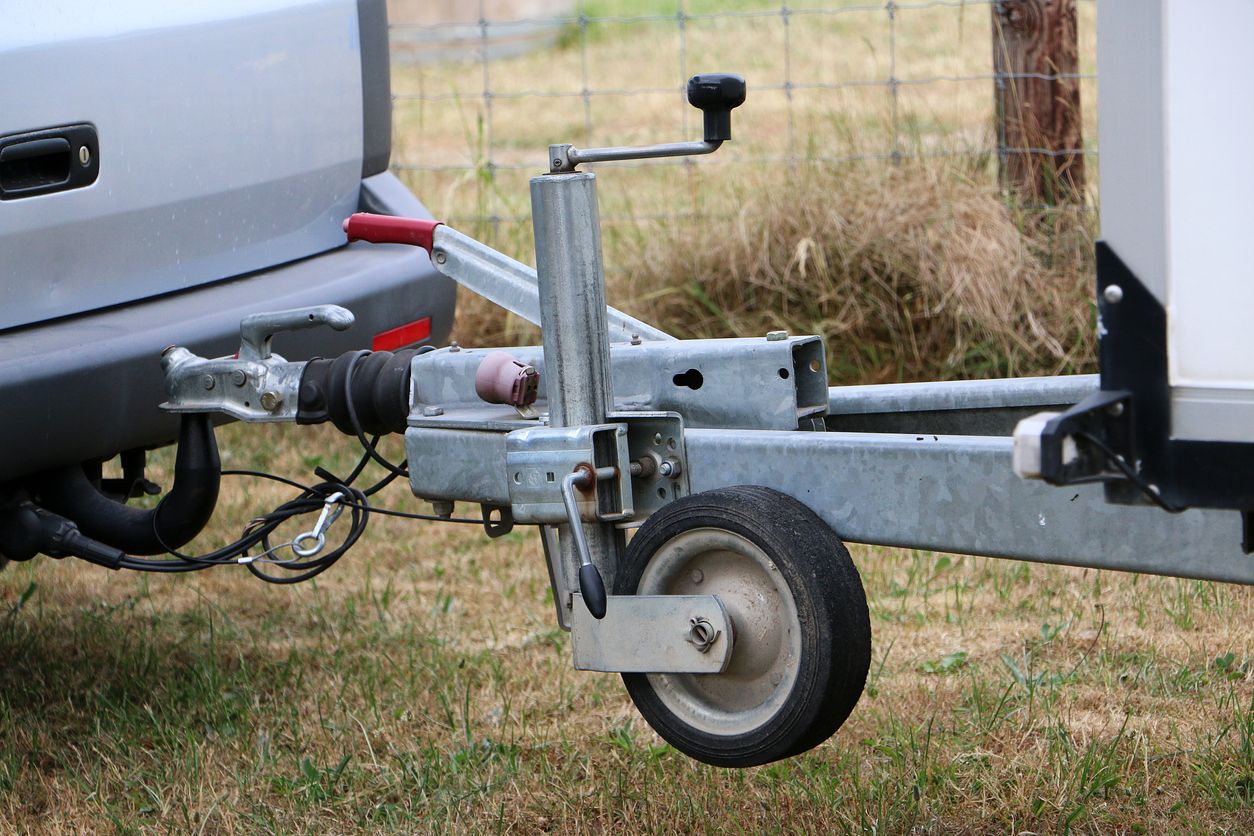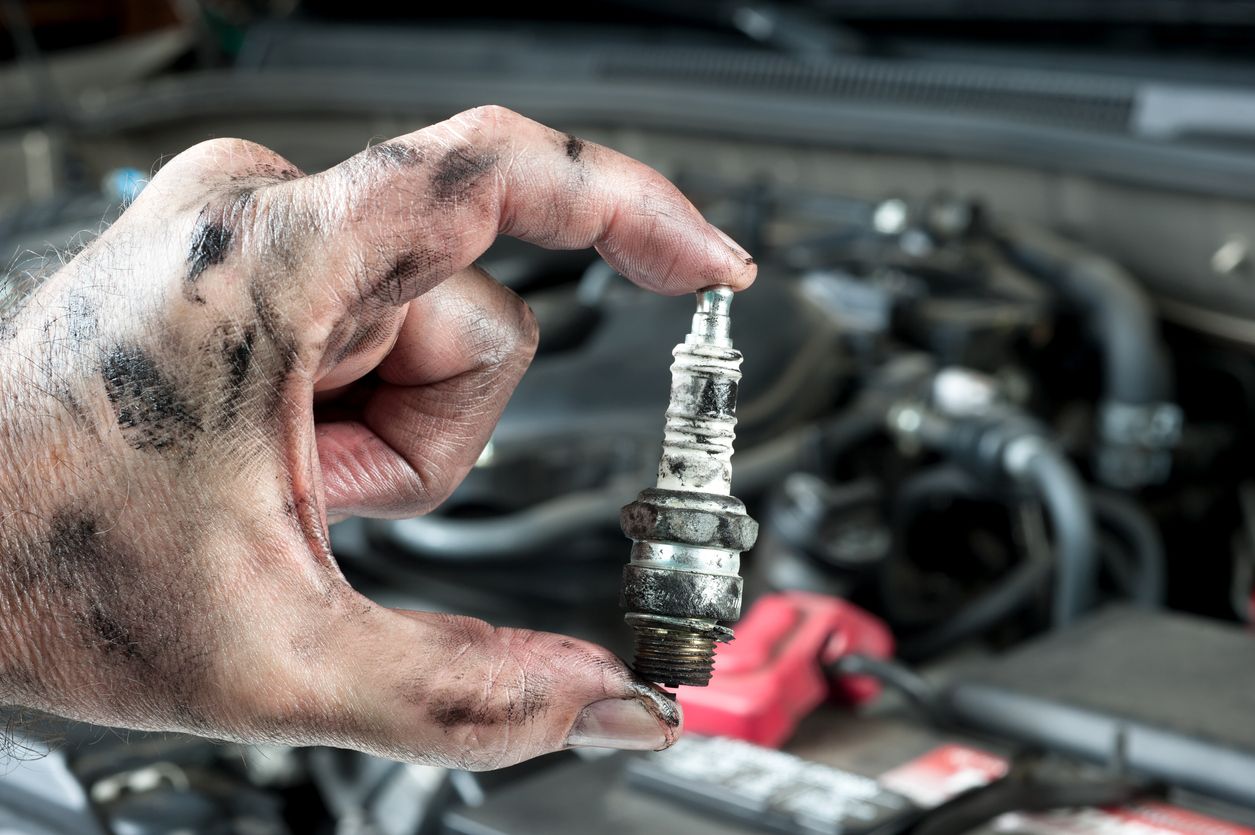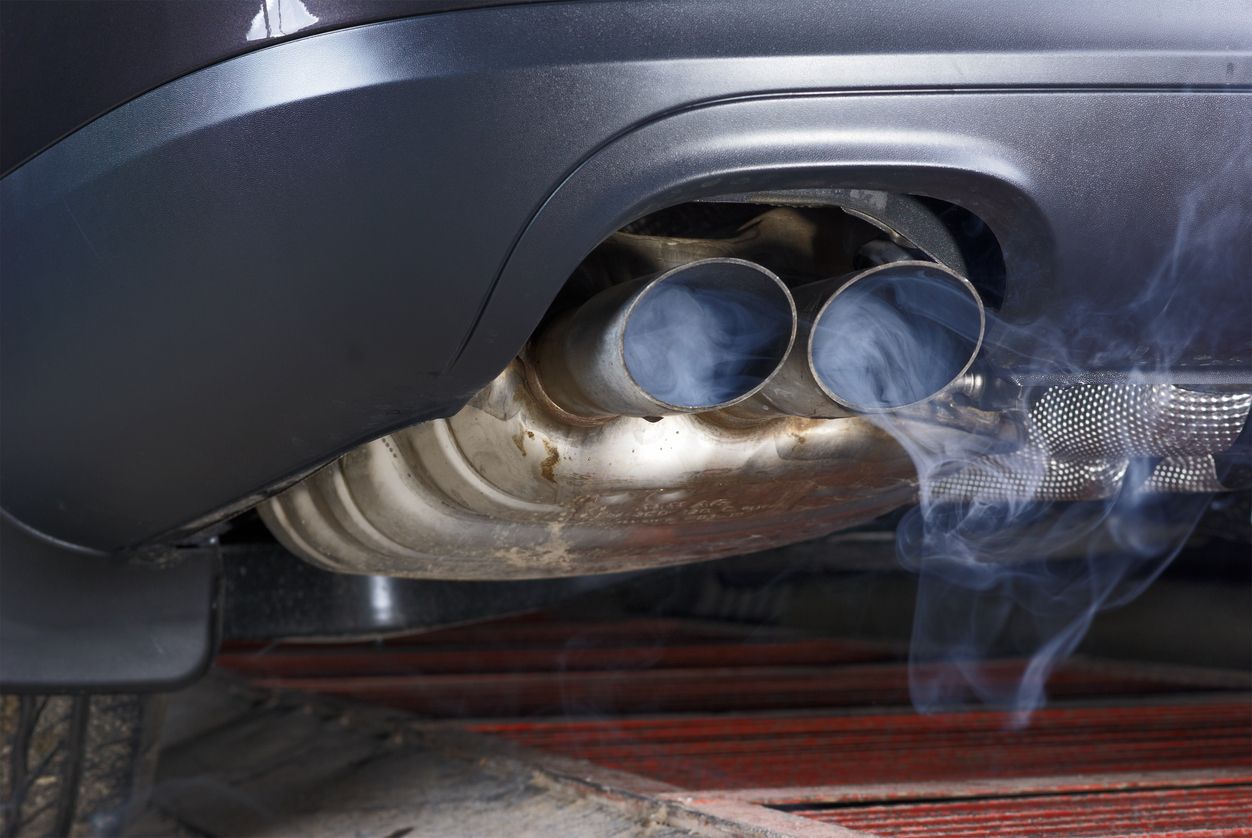Every weekend, you hitch up a trailer loaded with your favorite offroad toys, haul your beloved horses to shows, or take out the family camper. Or maybe you’ve never towed anything before but want to lend a hand with your friend’s upcoming move, and you’re wondering: Is towing bad for your car? Either way, it’s essential to know about your vehicle’s capabilities and the effects that towing can have on your ride.
Does Towing Damage Your Car?
Imagine walking on a treadmill at your average, relaxed pace – it’s pretty simple. Now, imagine you’re carrying a heavy backpack. Even that same comfortable walking pace becomes difficult, right? Your legs, back, and knees might get achy or give out if your fitness isn’t great or you have an injury. This is more or less what happens to your vehicle when you tow a trailer. Towing forces your vehicle and its components to work harder than everyday driving.
But does towing a trailer damage your car? Towing can increase wear and tear on your vehicle, though the extent depends on many factors, including what you are towing, the size of your car, engine type, drivetrain, the age of your vehicle, tire capacity, and more.
Here are a few components that can be most heavily affected by towing.
Transmission
Transmission damage from towing can occur for several reasons. If your vehicle’s transmission needs service, towing might stress this component even more. Or, if you have low or contaminated transmission fluid in an automatic vehicle, slipping and overheating can become a concern. And even if you have serviced your transmission properly, accelerating too quickly or towing above your vehicle’s tow rating could cause damage. Keep reading to learn more about tow capacity!
Brakes
Whether you’re towing a 20-ft stock trailer or nothing at all, working brakes are critical for your safety and other vehicles on the road. Pulling a trailer increases the stopping weight of your vehicle substantially, which causes your brakes to work harder than usual to stop. That increases the demand on your brake pads and rotors. Slamming on the brakes while towing can cause further damage such as overheated brakes and glazed rotors.
Note: Utilize the trailer's brakes whenever equipped for better stopping control. Doing so activates both the trailer's brakes and your vehicle's brakes for more seamless stop power.
Engine
Much like your leg muscles in the walking metaphor above, your engine has to use more power to pull a trailer. If your fitness and health (or, in this case, your vehicle’s regular maintenance) aren’t up to snuff, it can further stress the engine. An overworked engine can overheat without proper airflow or low coolant. All of which has the potential to cause significant damage.
Tires
As your engine produces more power to pull a trailer, it puts additional force on your tires. This added force could cause your tires to spin out before finding traction, particularly if they don't have adequate tread.
Additionally, the added weight of your trailer and its contents puts extra weight on your tires, which can cause them to wear at a quicker rate. Always ensure that you have the correct tires for your vehicle and that they are in the best condition possible before towing.
Suspension
Think of your car’s suspension as your joints in the walking metaphor. While the engine, or your muscles, do the heavy lifting, your joints and connective tissue get pulled on and strained.
Similarly, adding the weight of a trailer to your vehicle puts extra stress on the suspension system. Be sure to have your vehicle's suspension system inspected regularly if you tow. Towing on a worn component can lead to premature failure which can be just as miserable as a blown-out knee or twisted ankle!
What Is Towing Capacity?
If you’ve ever seen a commercial for a pickup truck or heavy-duty SUV, you’ve probably heard phrases like “payload capacity” and “towing capacity,” followed by a string of numbers. But what do those numbers really mean when you’re getting ready to tow something? Here's a high-level overview of what these common terms mean.
Towing capacity
The towing capacity of your vehicle is a straightforward number that indicates how much weight it can safely pull behind it, including the trailer and its cargo. You can typically find this in your owner’s manual.
Payload capacity
The payload capacity of your vehicle is a little more complicated. This number indicates the maximum weight of cargo it can carry – and includes everything that didn’t come bolted to the car: passengers, pets, luggage, your extensive CD collection, or that bed full of mulch you just picked up. Adding larger tires and wheels than what comes stock on your vehicle also counts towards the payload capacity.
How do you calculate your vehicle’s towing and payload capacity?
Your vehicle’s manual should list both the towing and payload capacity, though modifications like changing wheels and tires can affect those numbers.
What happens if you tow over capacity?
Towing over capacity is a serious problem and should not be taken lightly. Not only can it cause damage to your car and its components but it can also be extremely dangerous. Does towing shorten the life of a vehicle? Not always, but towing over capacity can contribute to increased wear and tear and the chance of damage.
Problems caused by towing beyond your vehicle’s max towing capacity can include but aren’t limited to:
- Engine or transmission damage
- Frame damage to your vehicle
- Trailer sway, which can result in the trailer breaking off or flipping
- Difficulty stopping, or in some cases, total brake failure
Any of these can be problematic and even catastrophic. When in doubt, consult your vehicle’s manual.
How To Prepare Your Vehicle For Towing
Even if you have a heavy-duty vehicle or have towed a trailer successfully in the past, it’s important not to assume that your vehicle is already set up to tow or ready to go when you are. Always perform a safety inspection before towing anything.
1. Ensure you have a proper hitch.
Choosing a trailer hitch isn’t as simple as it may seem. First, check your vehicle’s manual for what class hitch (I-V) best suits your vehicle. Then, choose the best type of hitch (receiver hitch, fifth-wheel hitch, gooseneck hitch, or weight distribution hitch) based on your trailer. Ensure the hitch is installed securely and properly on your vehicle according to the manufacturer's instructions. If you're not comfortable with hitch installation, seek professional assistance.
Inspecting the hitch, bolts, nuts, safety chains, wiring, and other components is crucial to ensure they are in good condition. Perform maintenance as recommended by the hitch manufacturer, and if you’re ever unsure, consult a professional!
2. Choose tow-ready tires.
Just because you have a nice truck doesn’t mean your tires are ready to tow. A high-quality tire can make all the difference in your vehicle’s performance when hauling heavy loads. Consider a truck and SUV-specific tire like the Bridgestone Dueler A/T Revo 3 or Firestone Destination A/T 2 to maximize your vehicle’s potentia
Even if your vehicle has the appropriate tires, inspecting them before you hitch up the trailer is essential. Check for appropriate PSI, cracks, punctures, excessive wear, and any sign of damage, as seemingly minor issues can spell disaster under the stress of towing.
The same goes for your trailer tires. The tires can rot if your trailer isn’t used often and sits in your yard for months. Perform the same inspection on your trailer tires that you do on your vehicle tires. Not sure which trailer tires are best for you? Stop by your local Firestone Complete Auto Care and our technicians will help find the right Suredrive trailer tires for you.
3. Always carry safety equipment.
Ensure you have proper safety equipment any time you pull a trailer. Ensure your brake and blinker lights function correctly, and replace them if necessary. A stocked roadside safety kit should always be in your car, including flares, a spare tire, and safety vests.
4. Keep up with regular maintenance.
Towing strains your vehicle and makes regular maintenance even more critical. Oil and fluid changes, tire rotation and balance, and other recommended maintenance may need to occur more frequently than usual if you use your vehicle to tow often.
Your local Firestone Complete Auto Care can help you keep your car or truck in great shape with routine and emergency maintenance, no matter how often you use it to pull a heavy load.
Firestone Complete Auto Care Can Help Get Your Vehicle Ready to Tow!
Don't risk shortening the life of your vehicle. Get it in top shape before towing a trailer, car, or anything else. Visit Firestone Complete Auto Care for tires and top-notch maintenance services. Schedule your appointment today.



